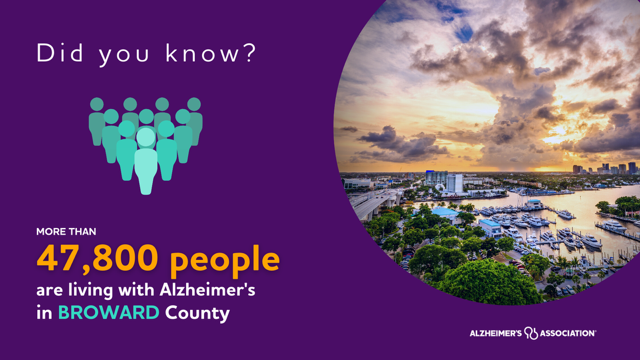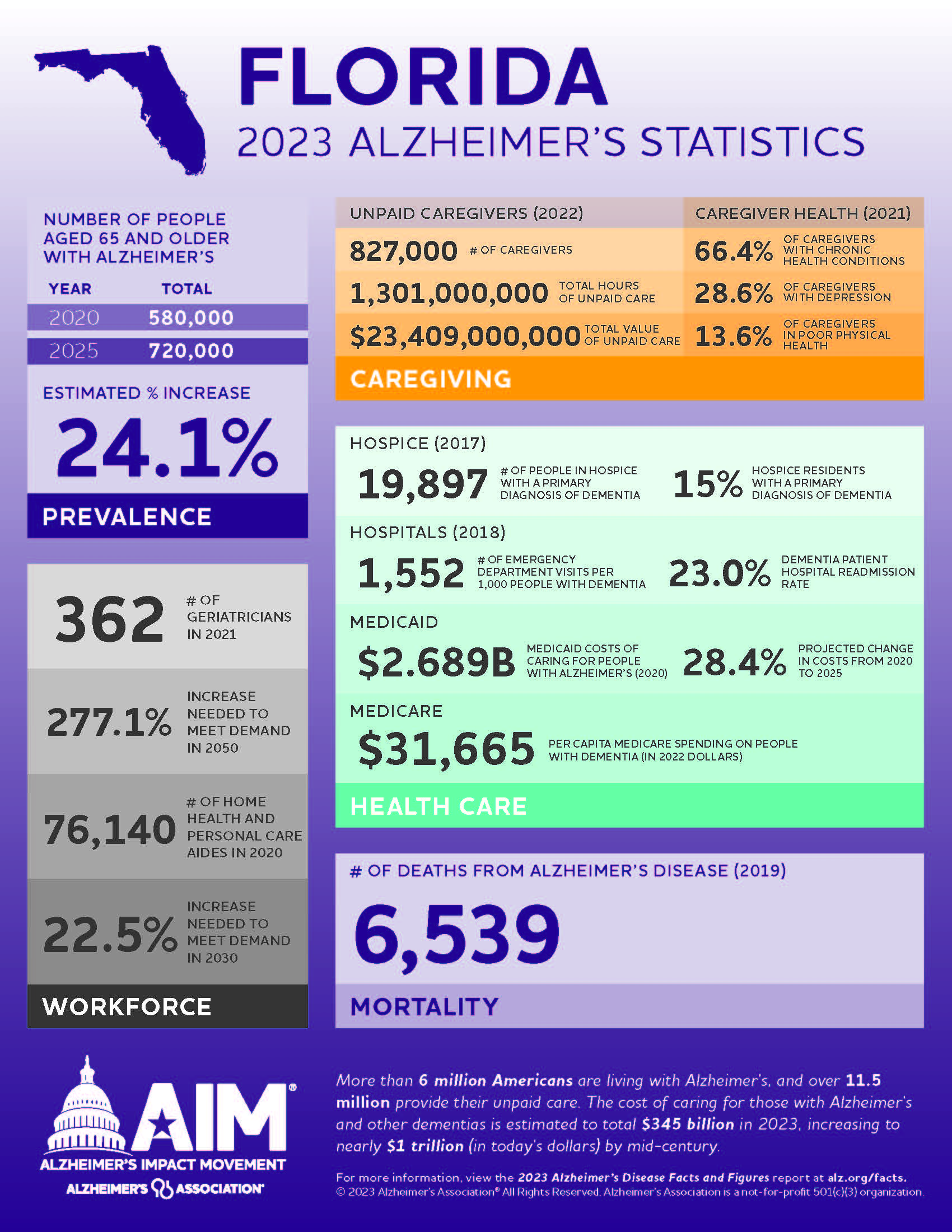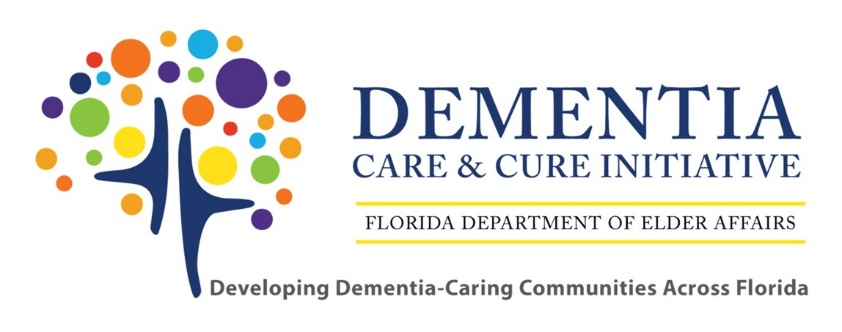If you are a caregiver or loved one of someone with dementia or Alzheimer’s disease, our goal is to provide you with useful information and helpful services.
What is Dementia vs Alzheimer’s Disease?
- Dementia is a general term for loss of memory and other thinking abilities severe enough to interfere with daily life. Learn early signs, symptoms and more. Learn More
- Alzheimer's is a type of dementia that affects memory, thinking and behavior. Symptoms eventually grow severe enough to interfere with daily tasks. Learn More
What are the stages of Alzheimer’s?
The symptoms of Alzheimer's disease typically progresses slowly in three general stages – Early (mild), Middle (moderate) and Late-stage (severe). The symptoms of Alzheimer's disease worsen over time, although the rate at which the disease progresses varies. On average, a person with Alzheimer's lives four to eight years after diagnosis, but can live as long as 20 years, depending on other factors. Learn More
Understanding & Dealing with Alzheimer’s Disease & Related Disorders
This free education manual is dedicated to the heroic families who are dealing with the challenges of Alzheimer’s disease or related disorders in loved ones. https://elderaffairs.org/wp-content/uploads/florida-alzheimers-disease-initiative-education-manual.pdf
ARTICLE - Artificial Intelligence Approach May Help Detect Alzheimer's Disease from Routine Brain Imaging Tests (massgeneral.org)
Click HERE

Additional information can be found at Broward Health North, link below
For additional information on the State of Florida’s Deparment of Elder Affairs Dementia Care & Cure Initiative, visit https://elderaffairs.org/programs-services/bureau-of-elder-rights/dementia-care-cure-initiative/
Brain health refers to the maintenance of optimal brain function and mental well-being throughout life. It encompasses a range of factors that contribute to the brain's ability to perform cognitive processes, regulate emotions, and maintain neural plasticity.
What is Cognitive Aging?
As we age, our brains age too. Cognitive health is the ability to think, learn, and remember clearly. It is needed to carry out many everyday activities effectively and is just one aspect of overall brain health. Cognitive aging is a natural process that can have both positive and negative effects and these effects vary widely from person to person.
Importance of Brain Health
- Cognitive Performance: Maintaining brain health is crucial for sustaining cognitive functions such as memory, attention, and problem-solving skills, which are essential for daily activities and professional tasks.
- Mental Health: Good brain health supports emotional regulation and resilience, reducing the risk of mental health disorders such as depression, anxiety, and mood disorders.
- Aging and Neurodegenerative Diseases: Promoting brain health can help delay the onset or progression of age-related cognitive decline and neurodegenerative diseases such as Alzheimer's disease and Parkinson's disease.
- Overall Quality of Life: A healthy brain contributes to a higher quality of life, allowing individuals to remain independent, socially active, and engaged in their communities.
- Physical Health: The brain regulates many bodily functions, including movement, sensation, and vital processes like heart rate and breathing. Maintaining brain health supports overall physical health and well-being.
Prioritizing brain health is crucial for maintaining cognitive abilities, emotional balance, and overall well-being throughout life.
Available Resources:
- Tips to Talk to your doctor: https://mcknightbrain.org/wp-content/uploads/2024/03/McKnight_Tips-to-Talk-to-Your-Doctor_3.12.24.pdf
- What do Do if a Loved One is Experience Memory Loss: https://mcknightbrain.org/wp-content/uploads/2024/03/McKnight_Early-Signs-of-Memory-Loss_3.12.24.pdf
- Better Understand Your Brain: https://mcknightbrain.org/wp-content/uploads/2024/03/McKnight_Better-Understand-Your-Brain_3.12.24.pdf
- Cognitive Aging FAQs: https://mcknightbrain.org/wp-content/uploads/2024/03/McKnight_FAQ_3.21.24.pdf
- Cognitive Aging Infographic: https://mcknightbrain.org/wp-content/uploads/2024/03/McKnight_Understanding-Cognitive-Aging-Infographic_3.18.24.pdf
For additional resources regarding Alzheimer's Disease or related Dementia, please see below:
![]()
The Alzheimer's Association is a national nonprofit and leader in the fight to end Alzheimer's and all other dementia. They accomplish this by accelerating global research, driving risk reduction and early detection, and maximizing quality care and support.
For more information, visit www.alz.org or call the 24/7 Helpline at 800.272.3900.

